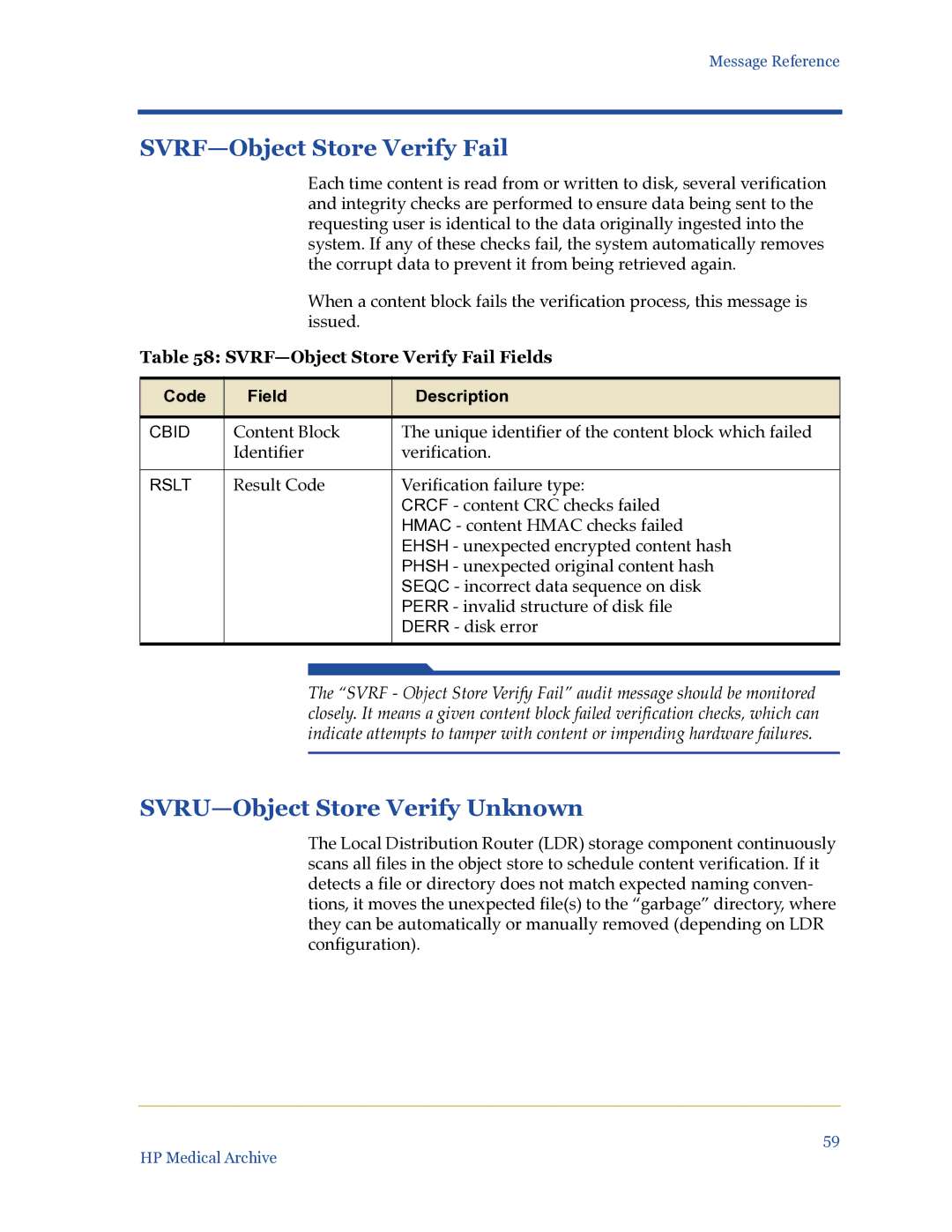
Message Reference
SVRF—Object Store Verify Fail
Each time content is read from or written to disk, several verification and integrity checks are performed to ensure data being sent to the requesting user is identical to the data originally ingested into the system. If any of these checks fail, the system automatically removes the corrupt data to prevent it from being retrieved again.
When a content block fails the verification process, this message is issued.
Table 58: SVRF—Object Store Verify Fail Fields
Code | Field | Description | |
|
|
|
|
CBID | Content Block | The unique identifier of the content block which failed | |
| Identifier | verification. | |
|
|
|
|
RSLT | Result Code | Verification failure type: | |
|
|
| CRCF - content CRC checks failed |
|
|
| HMAC - content HMAC checks failed |
|
|
| EHSH - unexpected encrypted content hash |
|
|
| PHSH - unexpected original content hash |
|
|
| SEQC - incorrect data sequence on disk |
|
|
| PERR - invalid structure of disk file |
|
|
| DERR - disk error |
|
|
|
|
|
|
|
|
|
|
|
|
The “SVRF - Object Store Verify Fail” audit message should be monitored closely. It means a given content block failed verification checks, which can indicate attempts to tamper with content or impending hardware failures.
SVRU—Object Store Verify Unknown
The Local Distribution Router (LDR) storage component continuously scans all files in the object store to schedule content verification. If it detects a file or directory does not match expected naming conven- tions, it moves the unexpected file(s) to the “garbage” directory, where they can be automatically or manually removed (depending on LDR configuration).
59
HP Medical Archive
